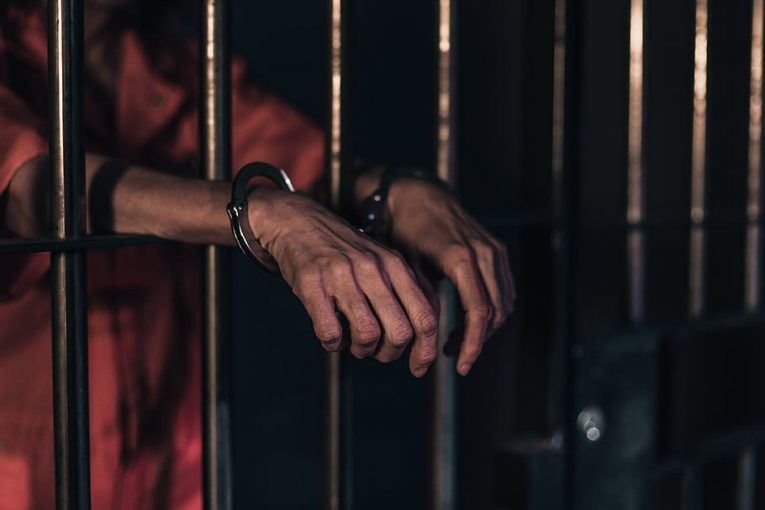
By Shaolien Chen-Graf and Helen Shamamyan
NEW YORK, NY – Senior Director of the Justice Program at the Brennan Center for Justice, Lauren-Brooke Eisen, argued the U.S. is at a critical juncture for criminal justice reform and needs to be careful about introducing legislation that fuels mass incarceration, in an opinion piece published by Newsweek last week.
According to Eisen, there has been increasing bipartisan support for criminal justice reform at the state level, noting in the past year, “Republican and Democratic governors have enacted common-sense reforms to disrupt the cycle of crime and incarceration, make our system fairer, and our communities safer,” according to the web article in Newsweek.
However, Eisen also expresses concern some state governments are doing the opposite and reverting to “tough-on-crime” approaches, explaining that at such a crossroads for criminal justice reform, it is imperative to learn from the past failures of mass incarceration.
An article from USA Today gives examples of these “roll back reforms” from Oregon (relating to a return to failed drug war policies) and Louisiana.
The President and CEO of the Council on Criminal Justice, Adam Gelb states this pattern of legislation is “a stunning turnabout, especially so soon after the wave of national protests against the system for being too harsh.”
Eisen, in the Newsweek article, said the Louisiana state legislature just this year “repealed the 2017 Raise the Age Bill, allowing courts to now try 17-year-olds as adults,” undermining efforts for common-sense reforms because it ignores that decision-making capabilities of 17-year-olds are not fully mature since “the human brain is not completely formed until the age of 25.”
As a result, this legislature allows minors whose brains have not fully developed to be tried and sentenced as adults, said Eisen, contending it is unethical and contributes to the issue of mass incarceration.
Eisen also outlines how state governments such as Louisiana and Georgia are introducing legislation to restrict alternatives to incarceration.
She explains, in the Newsweek piece, Louisiana has made parole inaccessible for almost all people convicted of crimes after July 31 of this year, and that Georgia’s passing of Senate Bill 63 severely limits the number of times people and groups can pay bail.
Eisen reports that “legislation would also make it a misdemeanor to post bail in violation of this restriction and reduces the number of bail eligible offenses,” which according to her, “will likely increase pretrial jail populations.”
Although Georgia’s state governor Brian Kemp has not publicly stated that he will sign the bill, Eisen is concerned that these punitive and restrictive policies will exacerbate the issue of mass incarceration within the U.S.
Additionally, the original article emphasizes the new House Bill 4002, which would “revive penalties for possessing those drugs and others—and comes with a potential six-month jail sentence.”
Eisen, in Newsweek, said Gov. Tina Kotek issued a statement in support of the bill, urging that “House Bill 4002 will require persistent action and commitment from state and local government to uphold the intent that the legislature put forward: to balance treatment for individuals struggling with addiction and accountability.”
“We all care about having safe communities, which is why it’s critical to avoid repeating our past mistakes and instead support policies that reduce unnecessary incarceration,” writes Eisen, noting the disconnect between rates of imprisonment and crime, arguing that there are ways to reduce both rates simultaneously.
In fact, Eisen writes in Newsweek a “2017 study found that 19 states (including Georgia and Louisiana) reduced both imprisonment and crime from 2000 to 2015.” She argues that such findings undermine the old-school idea that imprisonment is the only way to reduce crime and increase public safety.
In Eisen’s opinion, the U.S. needs to seriously reflect on past mistakes that have led to an ever-growing population of incarcerated individuals.
With “nearly two million people still behind bars,” Eisen’s Newsweek article critiques the U.S. for its overreliance on imprisonment as a form of punishment, writing, “The unfortunate irony is that America’s experiment with mass incarceration doesn’t produce public safety—and prison sentences are far too long.”
In a related press release by the US Department of Justice, Dr. Alexis Piquero, Director of the Bureau of Justice Statistics, notes “the overall correctional population continues to decline,” also adding, “while Blacks and Hispanics remain incarcerated at greater rates than whites, we are seeing long-term reductions in those differences.”
Eisen emphasizes there are numerous ways “to improve public safety while advancing reforms that respect human dignity, do not exacerbate conditions of poverty, and promote healing and racial justice.”
Some of her suggestions in the Newsweek article include “removing guns from our streets, building crisis response systems to address mental health and substance use, reducing prison sentence lengths, diverting some people from incarceration entirely, and investing in after-school and other youth programs.”